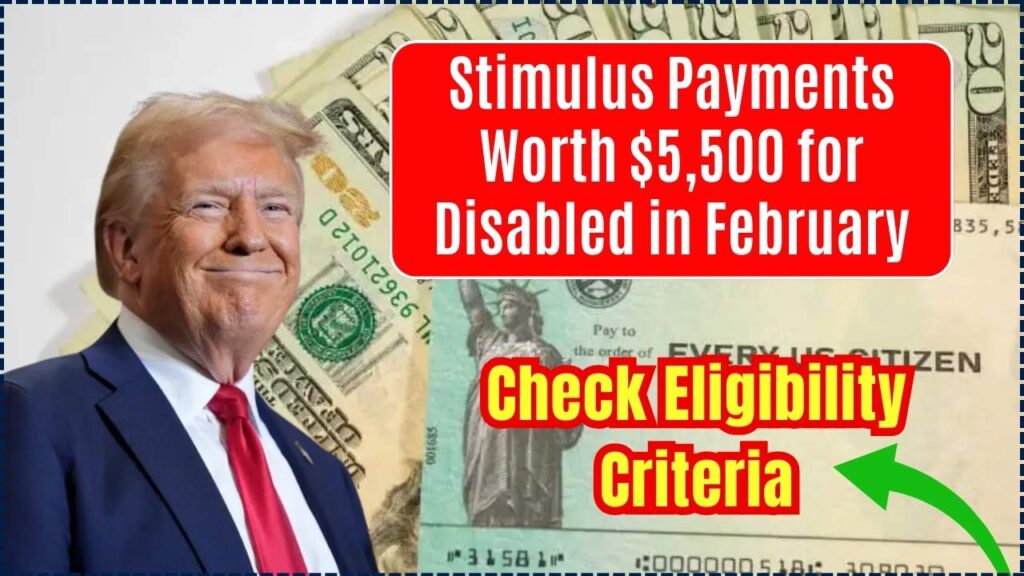Is a $5,500 Stimulus Coming? The Truth About February 2025 Payments
If you’ve heard rumors about a $5,500 stimulus check going out to Social Security recipients, SSDI, SSI beneficiaries, or low-income Americans in February 2025, you’re not alone. Many people are wondering if extra financial help is coming, especially as the cost of living continues to rise.
The truth is, there is no federal stimulus check for $5,500 scheduled for February 2025. However, some Social Security recipients are seeing higher payments this year due to the 2.5% Cost-of-Living Adjustment (COLA), and certain states are offering tax rebates and financial relief programs for eligible residents.
Let’s clear up the confusion and explain who is getting payments, when they will arrive, and how you can check if you qualify for additional financial aid.
Is a $5,500 Stimulus Check Coming in 2025?
Right now, there are no federal stimulus checks approved by Congress. The last round of government-issued stimulus payments was during the COVID-19 pandemic, and no new legislation has been passed for additional direct payments.
However, some people are still receiving unclaimed stimulus money from past programs. If you never received your third stimulus check in 2021 ($1,400 per person), you may still be able to claim it by filing a tax return before April 15, 2025.
For official updates, visit the IRS website.

Social Security, SSI, and SSDI Payments Have Increased
While there’s no new $5,500 stimulus, Social Security payments did increase in 2025 thanks to the 2.5% Cost-of-Living Adjustment (COLA). Here’s what that means for your benefits:
- SSI recipients now receive up to $967 per month for individuals and $1,450 for couples.
- SSDI and Social Security retirement benefits have also gone up based on individual earnings history.
If you receive Social Security, SSDI, or SSI, your payments are adjusted automatically—you don’t need to apply or take any action.
For more details, check the Social Security Administration (SSA) website.
When Will You Get Paid?
Your Social Security, SSDI, or SSI payments follow the standard payment schedule:
- SSI Payments → Sent on the 1st of every month (or the previous business day if it falls on a weekend/holiday).
- SSDI and Social Security Retirement Payments → Sent based on your birth date:
- Born 1st – 10th: Payment on February 12, 2025
- Born 11th – 20th: Payment on February 19, 2025
- Born 21st – 31st: Payment on February 26, 2025
For a full payment calendar, visit the SSA’s official schedule.
State-Level Stimulus and Rebate Programs
While the federal government isn’t sending out a $5,500 check, some states have tax rebates and relief programs that provide extra money for residents. Here are a few examples:
- New Jersey – The ANCHOR property tax relief program is sending payments up to $1,750 to qualifying homeowners and renters.
- California – Some residents are still receiving the Middle-Class Tax Refund based on their 2020 tax returns.
- Maine – Offers annual property tax and rent relief credits for eligible residents.
- Colorado – Sending TABOR refunds to qualifying taxpayers.
If you live in one of these states, check with your state tax department to see if you qualify for additional payments.
Beware of Stimulus Scams
Whenever there’s talk of new stimulus checks, scammers try to take advantage of people. Be cautious of:
- Fake emails or phone calls claiming to be from the IRS or SSA.
- Websites asking for personal information to “claim” a stimulus check.
- Social media posts spreading false information about payments that don’t exist.
The IRS never asks for personal details via phone, email, or text. If you’re unsure whether a payment is real, visit official government websites like irs.gov or ssa.gov.
If you need help checking your eligibility for extra benefits or filing for past stimulus payments, contact a tax professional or visit the IRS or SSA websites.


Comments are closed, but trackbacks and pingbacks are open.